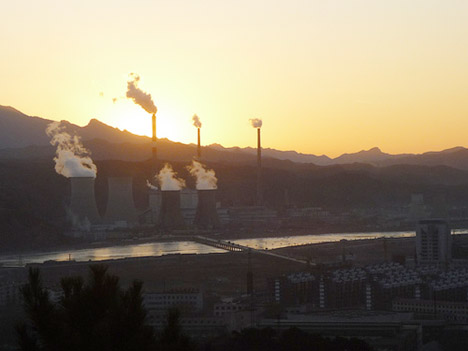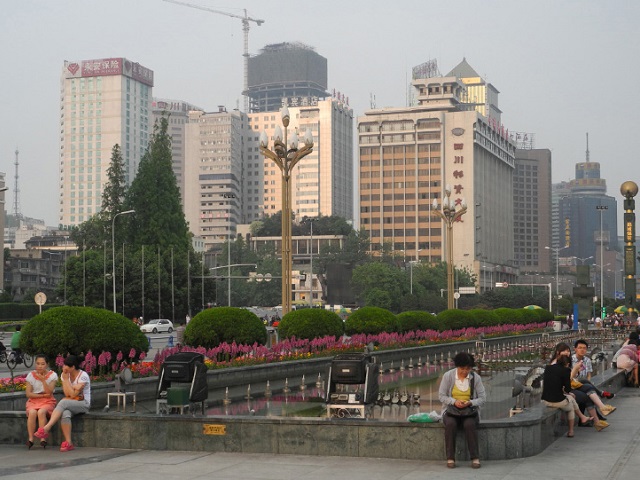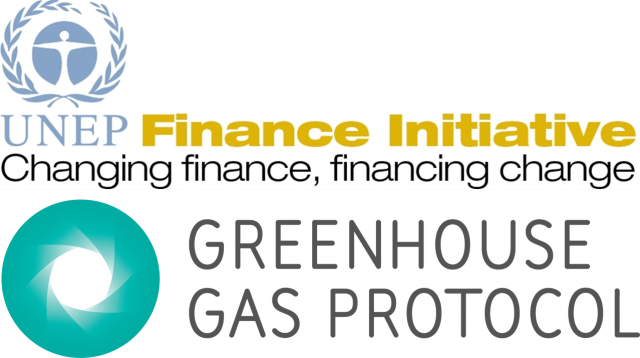Blog
Announcement: Facilitated Course for Policymakers and Practitioners Now Available
Designed for policymakers and practitioners developing economy-wide or sector-specific GHG reporting programs, the course Designing MRV Systems for Entity-Level Greenhouse Gas Emissions is now accepting enrolees for a facilitated online course, to take place Nov. 13 - Dec. 4, 2017.
Accounting Amendment: NF3 now required in GHG inventories
The GHG Protocol has released an accounting amendment that requires NF3 to be included in GHG inventories under the Corporate Standard, Value Chain (Scope 3) Standard, and Product Standard.
RELEASE: Companies Can Now Credibly Report Emissions From Low-Carbon Electricity Purchases
Today the World Resources Institute unveiled new guidance for companies to measure greenhouse gas emissions from purchased electricity. The first major update to the GHG Protocol Corporate Accounting and Reporting Standard responds to the rapid growth of renewable energy and other major shifts in the electricity market.
Launch of GHG Calculation Tool for Chinese Power Plants
In partnership with China Electricity Council (CEC), WRI developed a greenhouse gas (GHG) calculation tool for Chinese coal-fired power plants.
Scope 3 Evaluator Now Available
The Greenhouse Gas Protocol and Quantis have joined forces to develop and launch the Scope 3 Evaluator - a free, web-based tool that allows users to make an initial, rough approximation of their full Scope 3 footprint, regardless of the size or type of organization. Read the full press release here.
Chengdu Shows How Cities Can Turn Climate Commitments into Action
Chengdu Development and Reform Commission developed its first greenhouse gas inventory in 2015 (based on 2010 data). This inventory revealed valuable insights about the sources of the city’s emissions.
Hundreds of Cities Poised to Replicate Rio’s Approach to Measuring and Reducing Emissions
Rio de Janeiro is one of the world’s leading cities injecting sustainability into its planning. In 2011, Mayor Eduardo Paes enacted an ambitious climate change law, setting a goal to avoid 20 percent of its emissions by 2020, based on 2005 levels. There was only one problem: The city wasn’t sure just how much it was emitting, or where its emissions were coming from.
Hitting the right target: Business carbon reporting gets tough
With the Paris Agreement having come into force this year, 12 months after it was agreed, it is more important than ever for businesses to understand, report on, and reduce their carbon emissions.
Rajkot one of 40 global cities to cut carbon emissions
Gujarat's 'solar city — Rajkot in Saurashtra — is being globally recognized as a case study for reducing carbon emissions. As per report by World Resources Institute (WRI), a US-based organization, presented at the UN Climate Change Conference in Peru, Rajkot will be able to reduce 14 per cent cent of its carbon dioxide emissions by 2016.
Greenhouse Gas Accounting: A Potential Tool for a Climate Smart Urban Development
With cities developing at a whirlwind pace, it's more urgent than ever to track the GHG emissions they are pumping into the atmosphere. In the August 2017 issue of TerraGreen, Aditi Phansalkar explores how frameworks including the Global Protocol for Community-Scale Greenhouse Gas Emission Inventories (GPC) are helping meet that challenge.
RELEASE: New Guidance Will Help Financial Institutions Measure Emissions from Lending and Investment Portfolios
Many financial institutions measure and report their own greenhouse gas emissions, but the real impact is in their value chains. To address this gap, the Greenhouse Gas Protocol and the United Nations Environment Programme Finance Initiative have begun developing guidance to help financial intermediaries assess the emissions from their lending and investments portfolios.
RELEASE: Launch of First Global Standard to Measure Greenhouse Gas Emissions from Cities
Today the World Resources Institute (WRI), C40 Cities Climate Leadership Group (C40) and ICLEI - Local Governments for Sustainability (ICLEI) launched the first widely endorsed standard for cities to measure and report their greenhouse gas (GHG) emissions at a COP20 event featuring mayors and officials from cities around the world.
Do We Need a Standard to Calculate “Avoided Emissions”?
By Laura Draucker - November 05, 2013
New Greenhouse Gas Accounting Tool Will Help China’s Cities Pursue Low-Carbon Development
Low-carbon development has become the core theme of China’s urbanization. In fact, it’s one of the country’s key strategies to achieve its target of reducing carbon intensity by 40-45 percent by 2020.
23 Chinese Cities Commit to Peak Carbon Emissions by 2030
More than half the world’s people live in cities, and cities are responsible for more than 70 percent of all energy-related carbon dioxide emissions on Earth. These dramatic statistics mean cities have a critical role to play in addressing climate change.
Through Compact of Mayors, 360 Cities Will Cut Their Emissions 17% by 2030
As home to 3.5 billion of the world’s population, cities and urban areas play a crucial role in combating global climate change. And today, many of their leaders are announcing steps to do just that.
Program Based on U.S. EPA's Climate Leaders to be Launched in India
Since its creation in 2002, the U.S. EPA Climate Leaders Program has assisted more than 150 companies to develop and implement long-term climate change strategies. This includes developing a GHG inventory, an inventory management plan, and a GHG reduction target. To replicate the U.S. EPA Climate Leaders Program's successful model in India, WRI, U.S. EPA and the Confederation of Indian Industry (CII) Green Business Center (GBC) are partnering together to replicate the Climate Leaders program there.
Listening to Hurricane Sandy: Climate Change is Here
LCM 2011, Berlin, Germany
WRI’s GHG Protocol Director, Pankaj Bhatia, delivered a keynote address on the new GHG Protocol Supply Chain Standards at the Life Cycle Management (LCM) Conference 2011. The Life Cycle Management conference series is one of the world’s leading forums for environmental, economic and social sustainability.
Open Comment Period for Agriculture Guidance
GHG Protocol has released a second draft of its Agricultural Guidance for open comment. The Agricultural Guidance is an international supplement to the GHG Protocol Corporate Standard that aims to customize the latter to the agricultural sector, while addressing the unique challenges posed by the sector - accounting for reversible carbon stocks in soils and biomass, setting and tracking progress toward reduction targets against a background of highly variable emissions, quantifying emissions, etc.
















